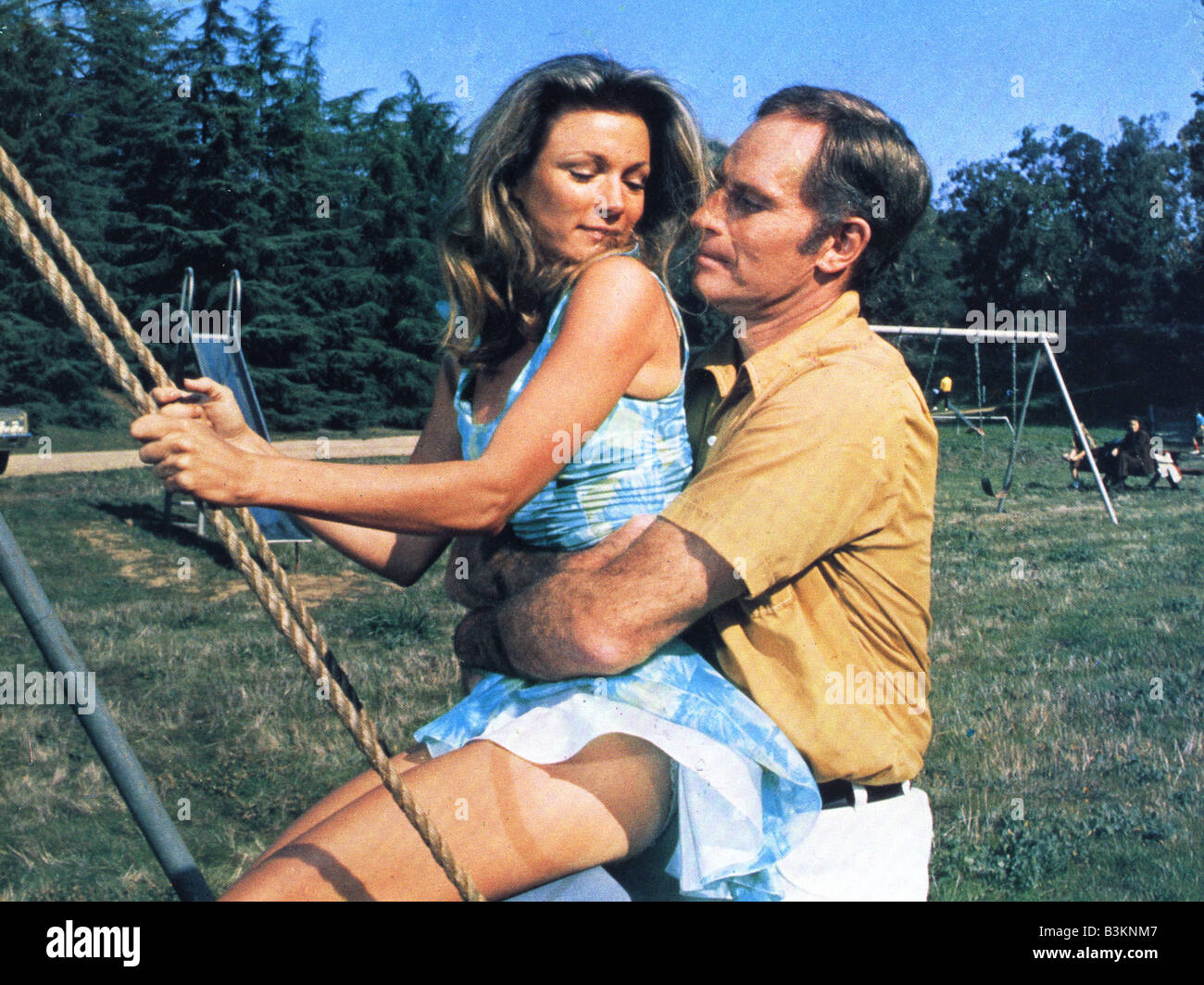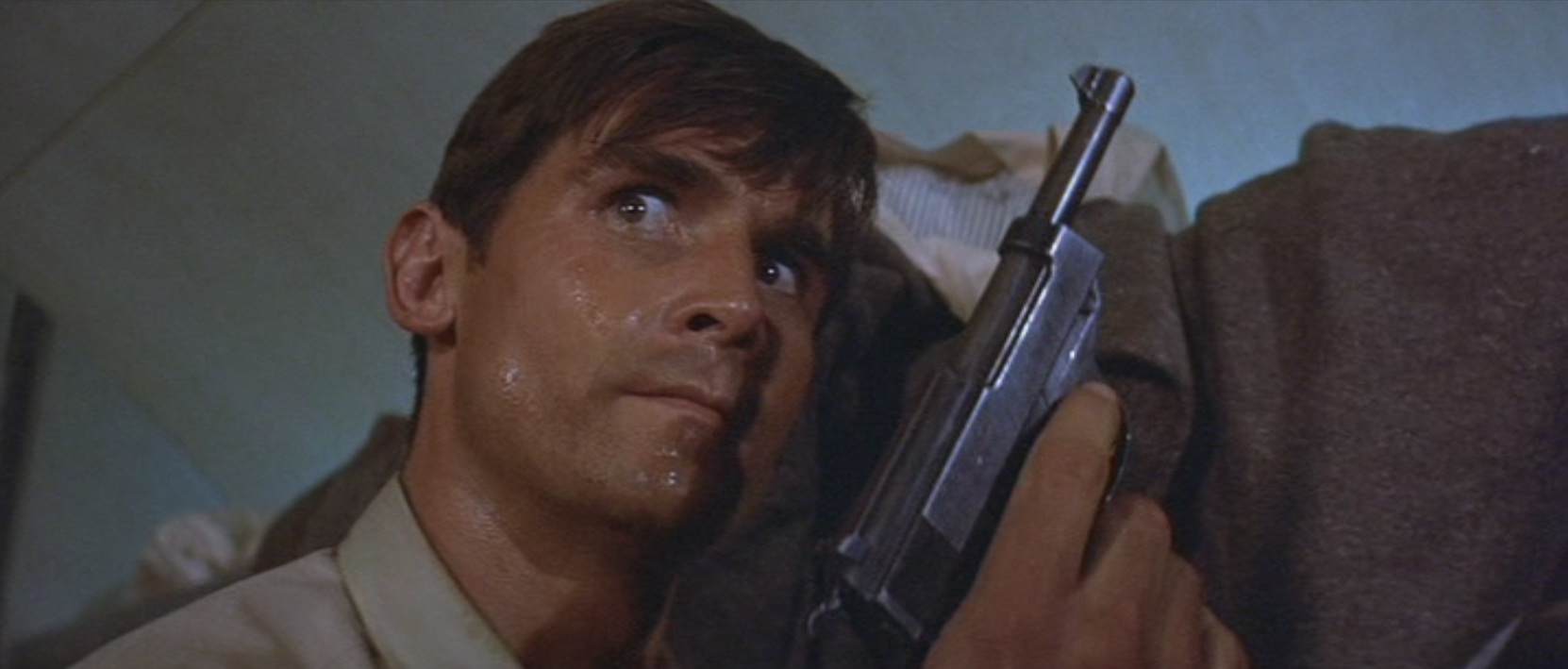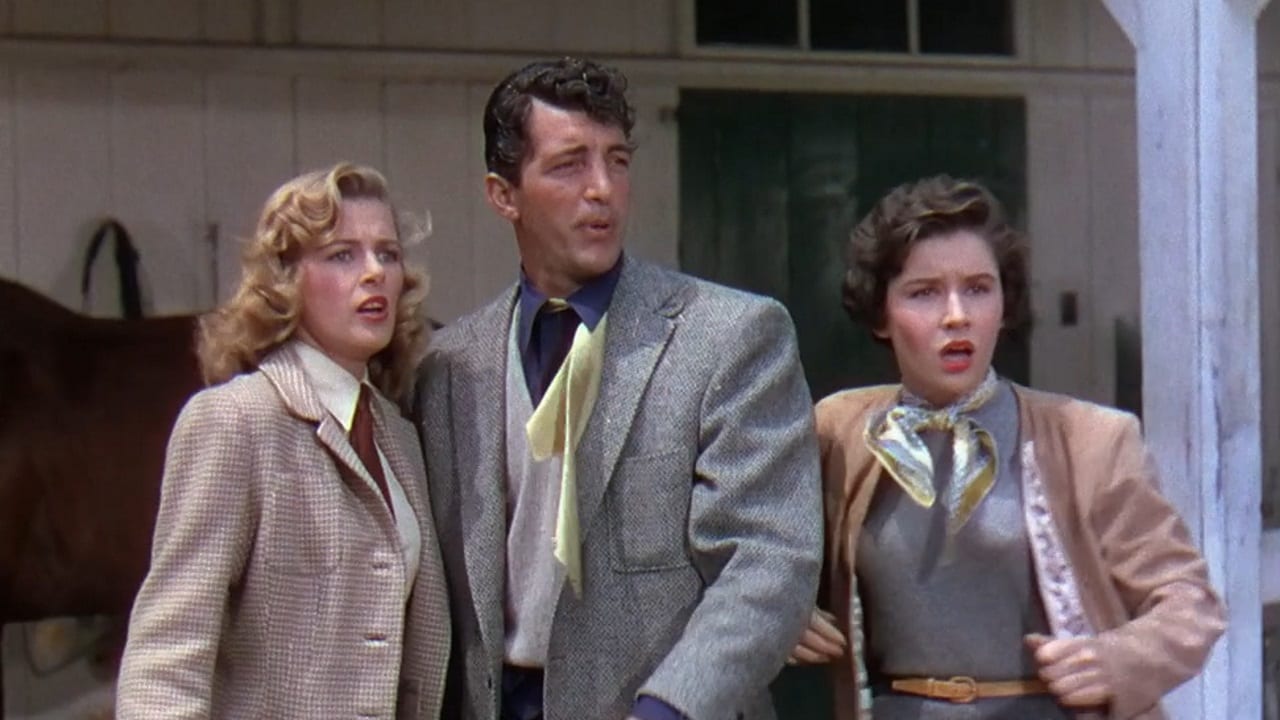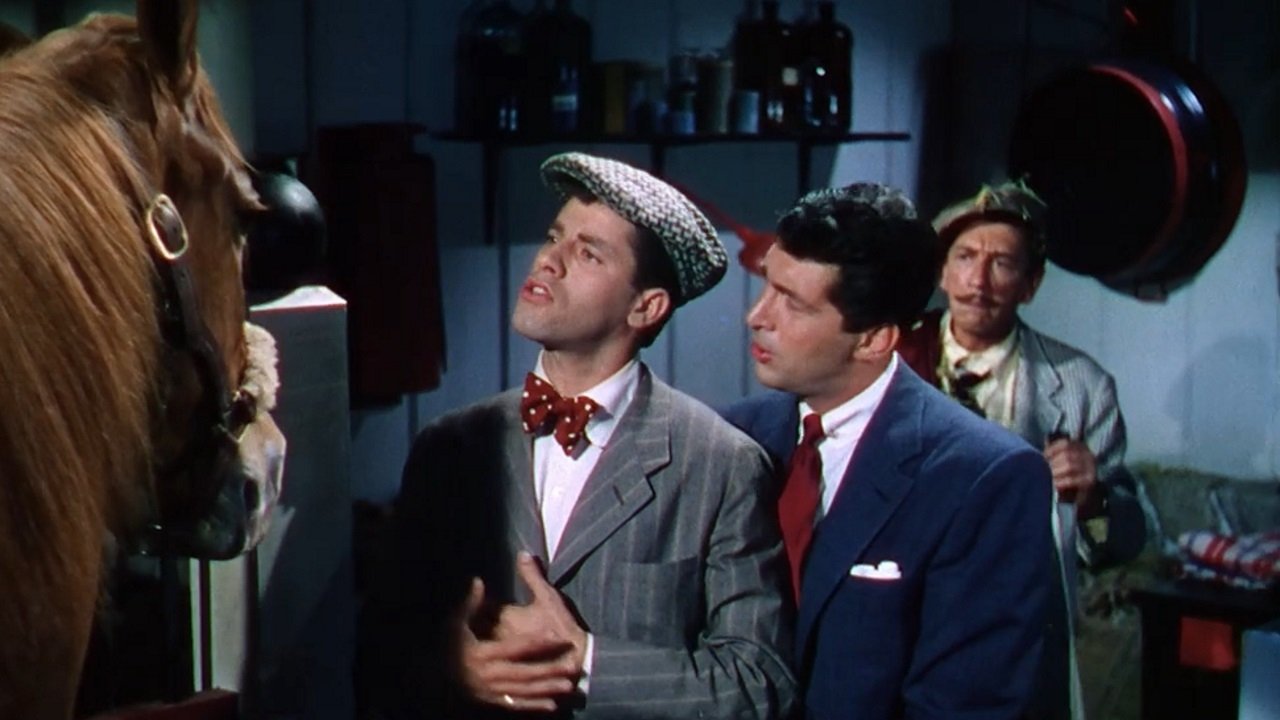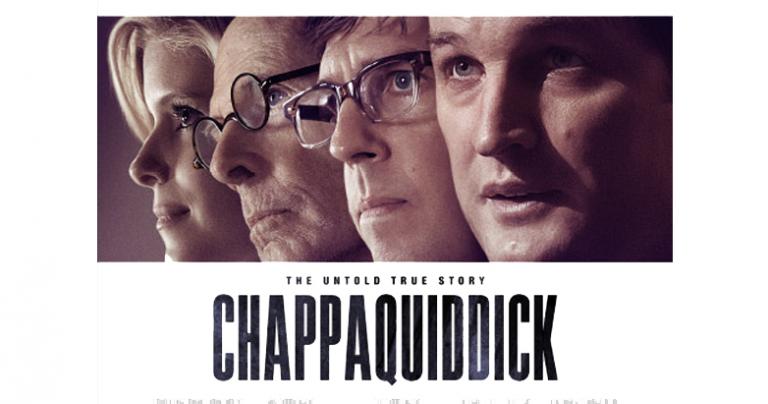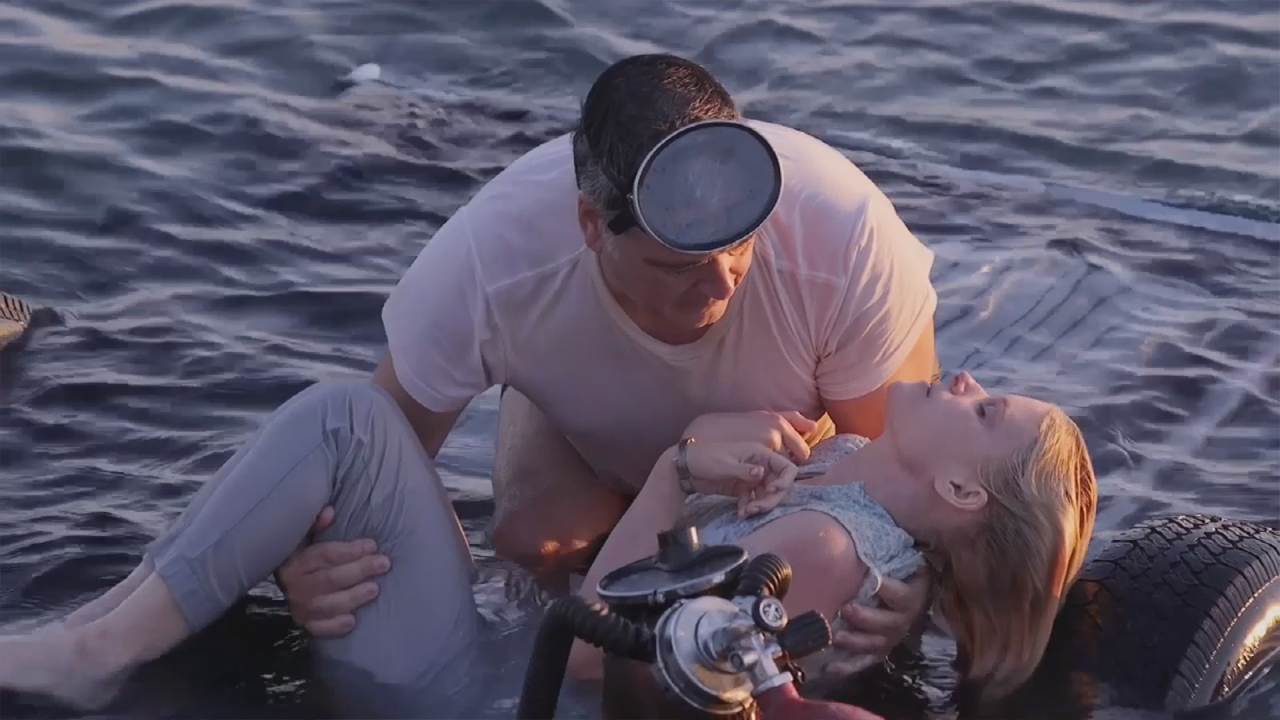Billy Rose's Jumbo
The concept of the circus as an entertainment form is practically forgotten which might make the appeal of
Billy Rose's Jumbo quite limited in this age of CG entertainment, but this splashy and elaborate 1962 musical, despite its dated appeal and some other problems, is still passable entertainment.

Set at the turn of the century, the film's setting is the Wonder Circus, the traveling big top named after its in name only owner, Pop Wonder (Jimmy Durante), though the organization is really run by his energetic daughter, Kitty (Doris Day), who is also one of the main attractions. Pop has a serious gambling problem that has put the circus in debt up to their tightropes, but the Wonders think they've found a saviour in a young drifter named Sam Rawlins (Stephen Boyd) who seems to be helping to get the circus back on its feet, but is, in reality, the son of a rival circus owner (Dean Jagger) who wants to take over the circus so that he can take possession of the show's # 1 asset: an 8000 pound elephant named Jumbo.

I was about five minutes into this film when I realized I thought how circuses don't really exist too much anymore and younger filmgoers will probably be confused and somewhat bored with the concept upon which this film is based, but this film stirred up a lot of childhood memories for me...I remember going to the circus on several occasions as a child, taking in the sights and especially the smells of the circus. Even though the place smelled like animal excrement, the clowns and the trapeze artists quickly made you forget the smell and take in the magic that only a circus could provide.

I've always wondered why the studio felt the need to proceed the title of this movie with Billy Rose's name since he really had nothing to do with the making of this film. He did produce the 1935 musical that was the basis for this movie. Despite the circus setting, when you strip away all the glamorous trappings, what you have left is your typical musical comedy with the typical misunderstandings and mustache twirling villains that we get in a musical. If I had one complaint about Sidney Sheldon's screenplay, I wish that the reveal of who Sam really was hadn't come as quickly as it does. I did like the fact that, in a refreshing change for a Doris Day movie, it is Doris' character who does the chasing instead of being chased.
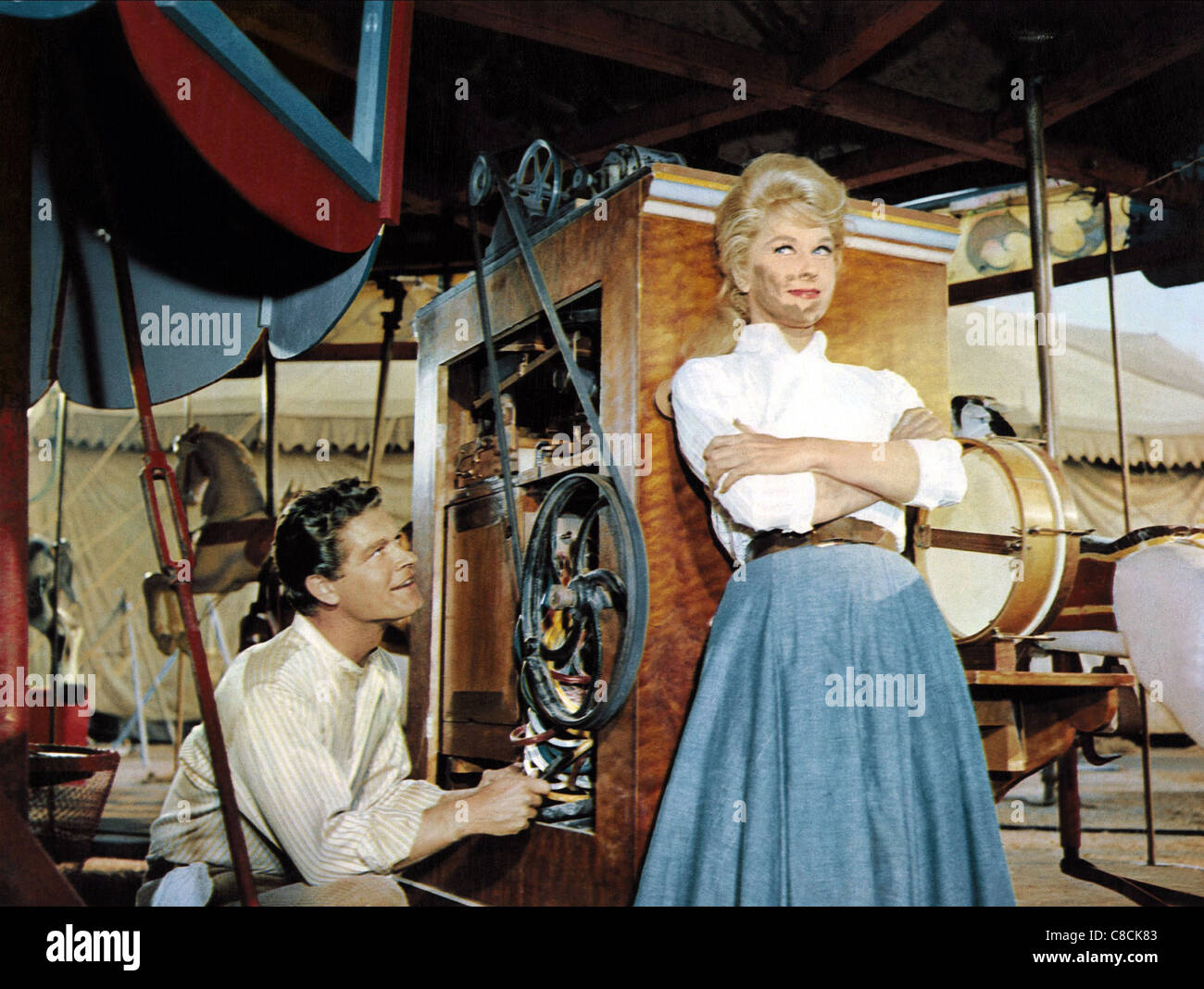
Of course, this cast makes up for a lot of the problems with this story. Doris Day is enchanting as always as Kitty and Day's husband, Marty Melcher, who is billed as one of the producers of this film, makes sure his wife is lovingly costumed and photographed and that no one forgets who the star of this film is. Jimmy Durante steals every scene he is in as Pop Wonder as does Martha Raye as Lulu, the fortune teller who loves Pop but can't get a wedding ring out of him. Sadly, the casting of Stephen Boyd is a real problem here, his wooden performance really drags down the proceedings. The best part of his performance is his singing, which is dubbed by Jimmy Joyce. I kept picturing Gene Kelly in this role and how special this film could have been with Kelly playing Sam.

The lovely Rodgers and Hart score includes "The Circus is on its Way", "Over and Over Again", "The Most Beautiful Girl in the World", "Why Can't I", "Little Girl Blue" and the lavish finale "Sawdust, Spangles, and Dreams". Doris' solo "This Can't Be Love" was actually written for another Rodgers and Hart show called
The Boys From Syracuse. The film features spectacular settings and costumes but I wish the editing had been a little sharper to cover up the fact that the stars weren't doing any of their stunts. Die hard musical fans will find limited pleasures here.




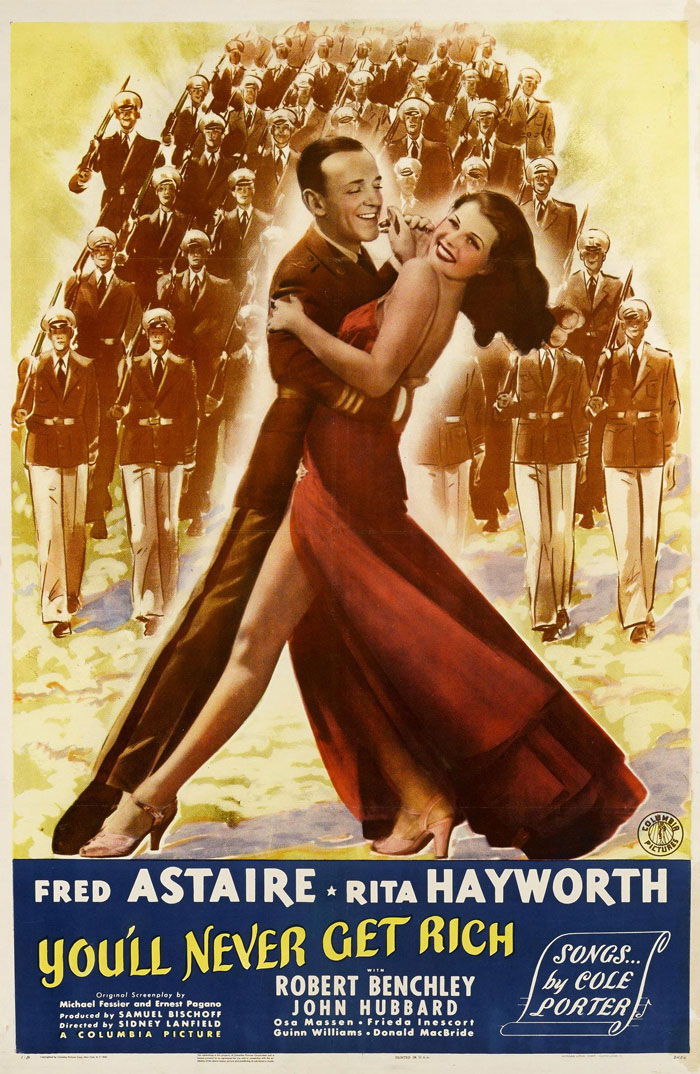
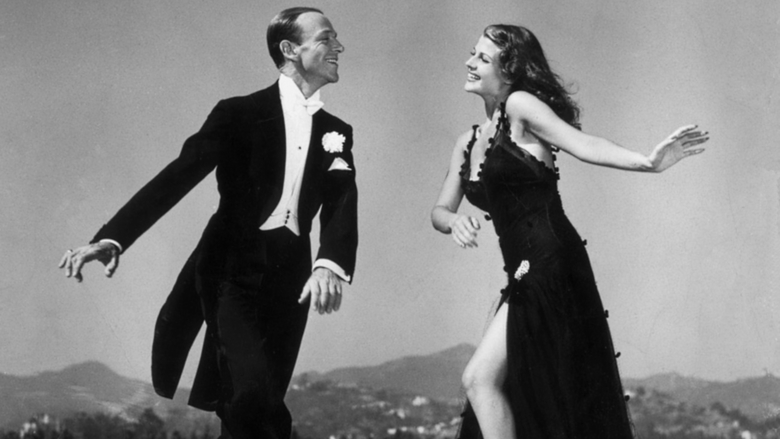









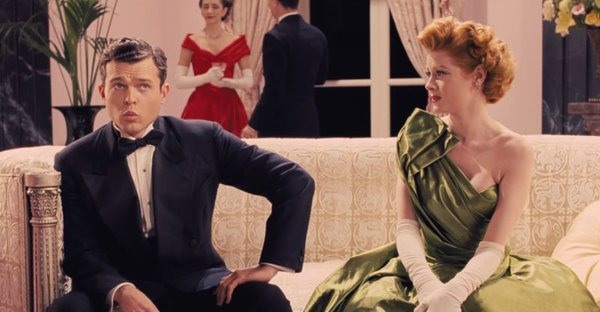
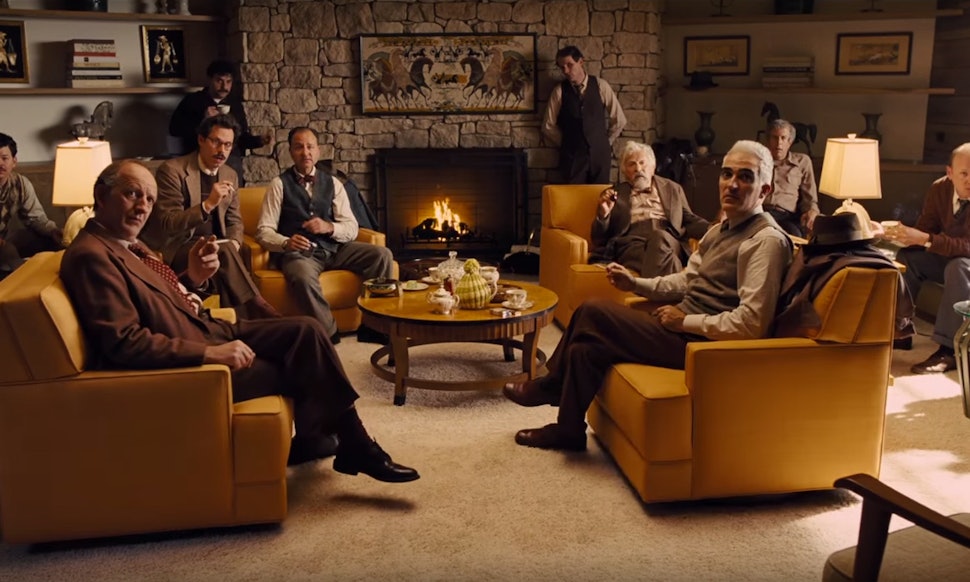

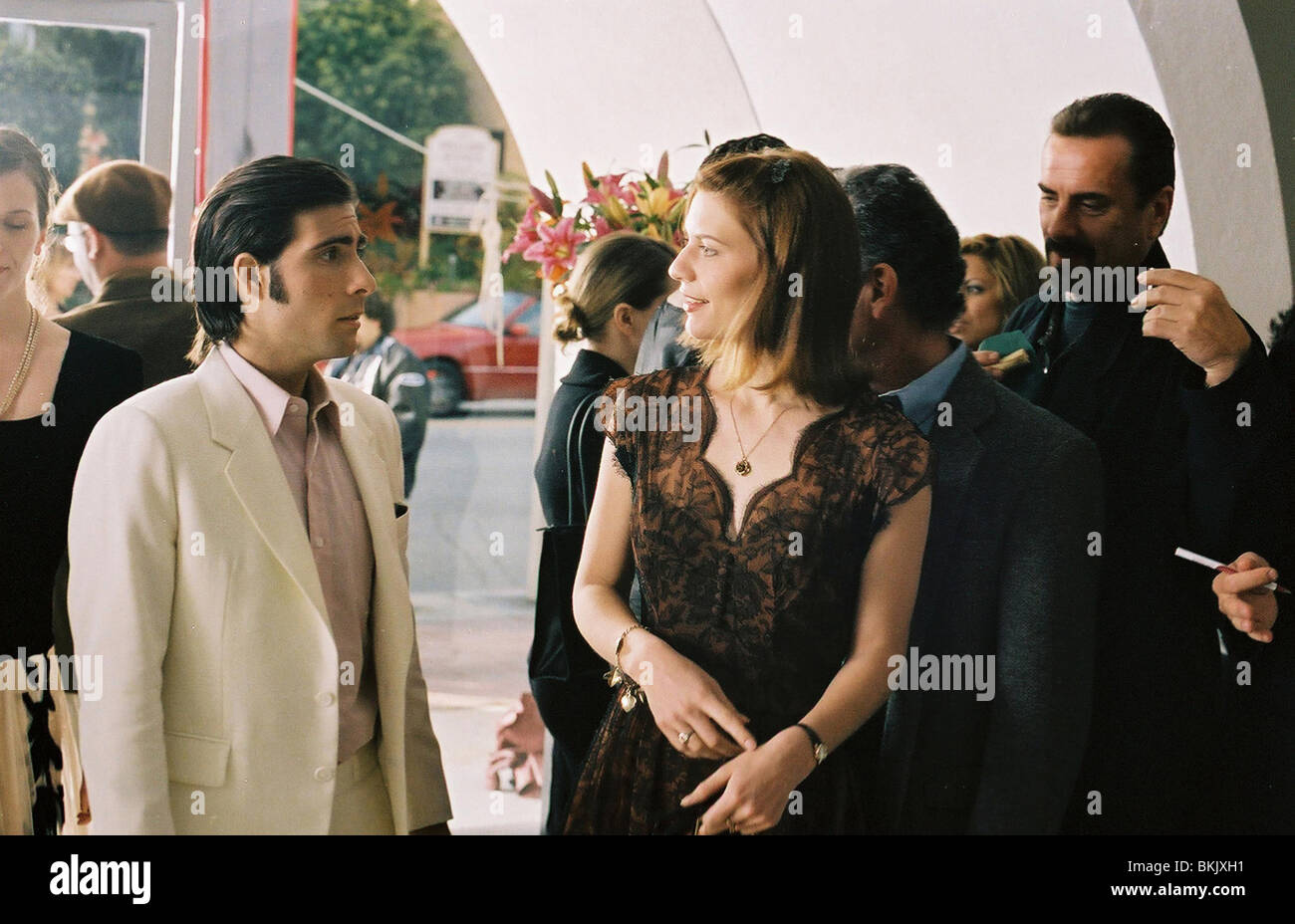


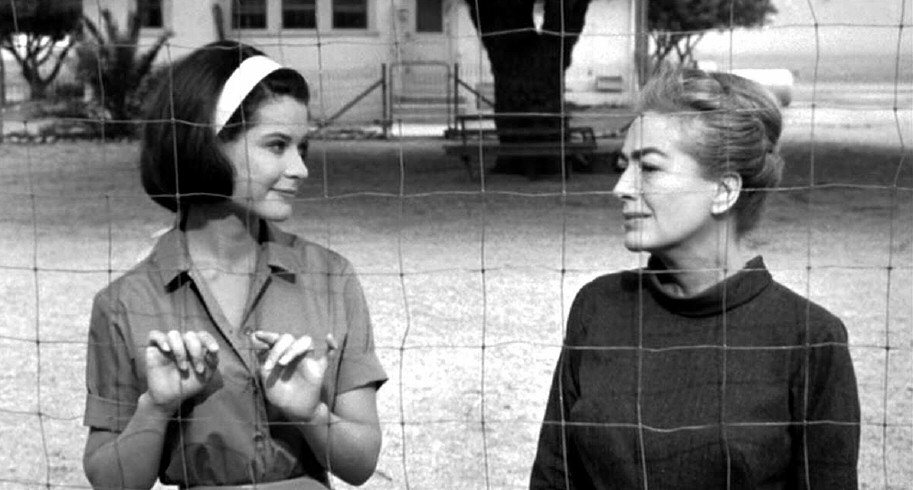
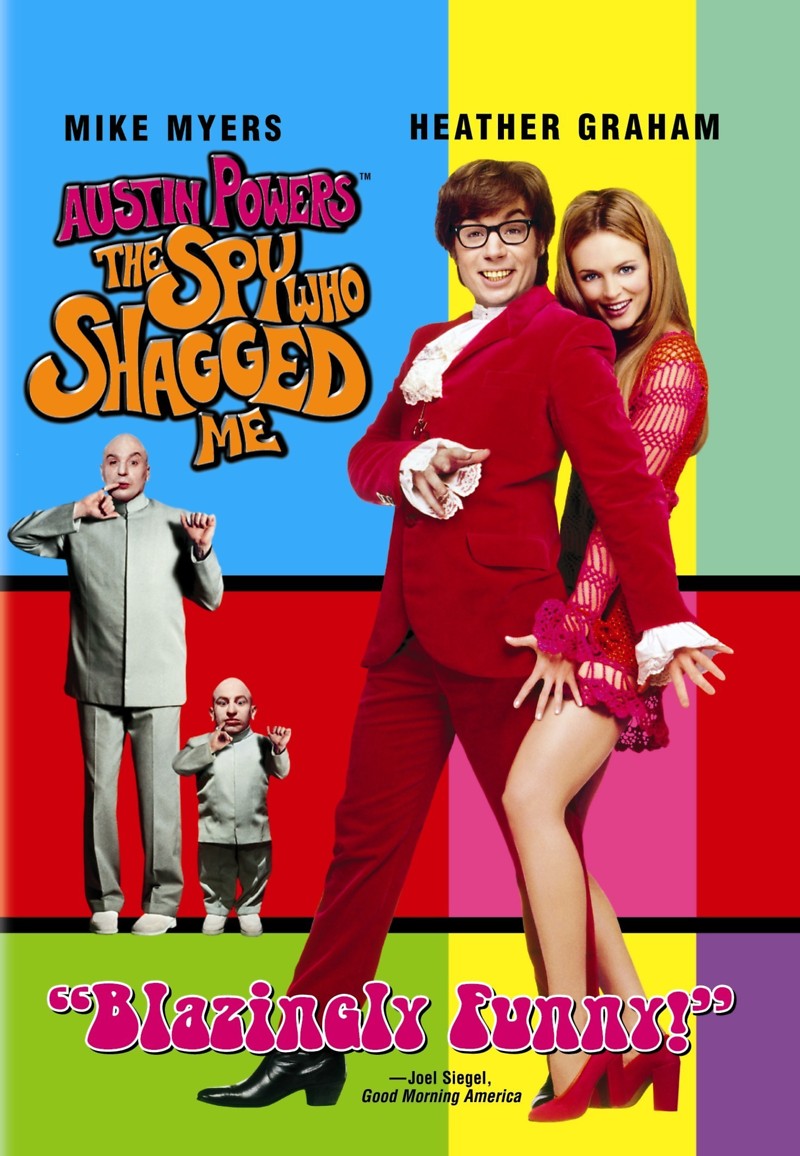
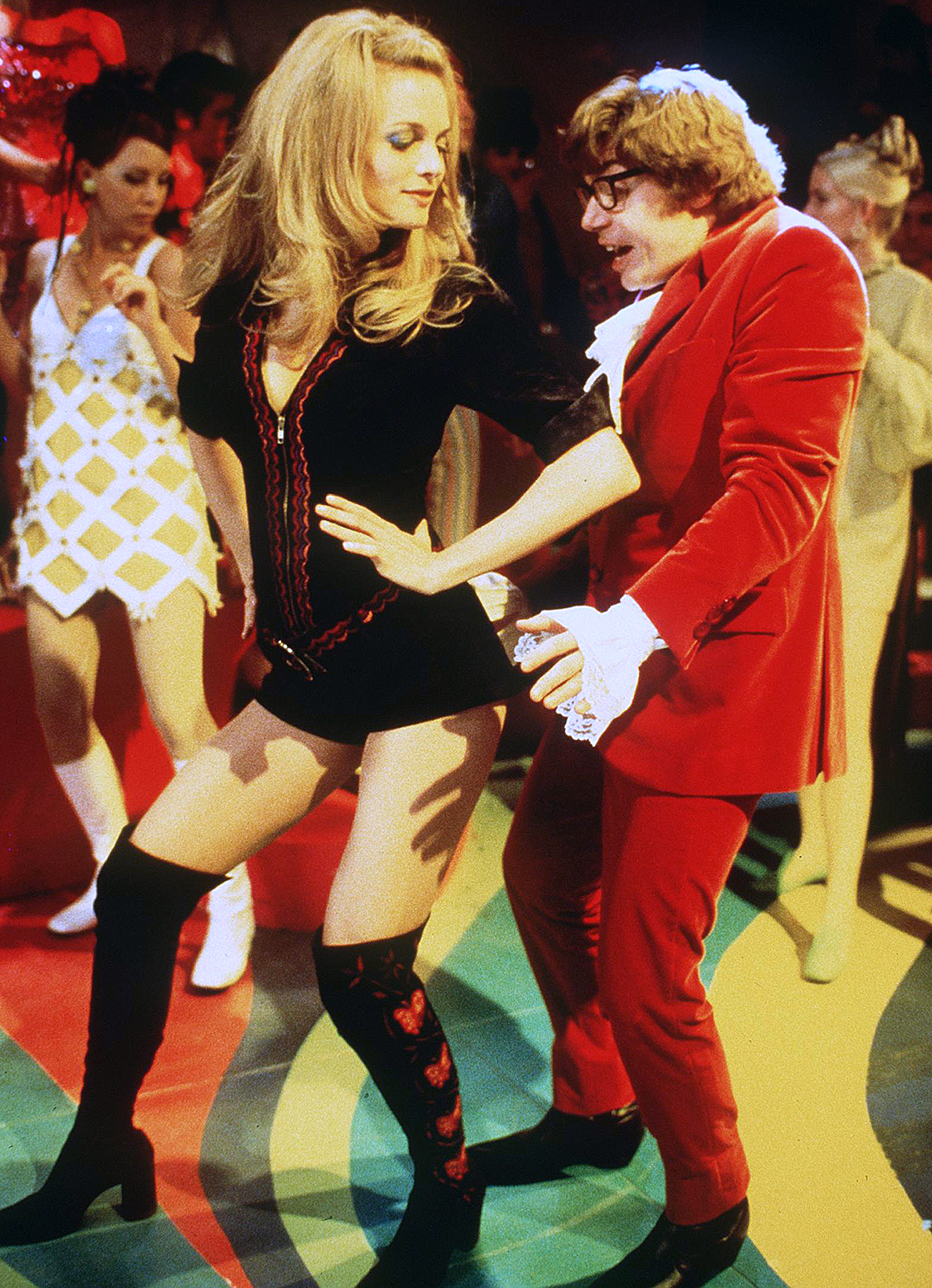


.jpg)

